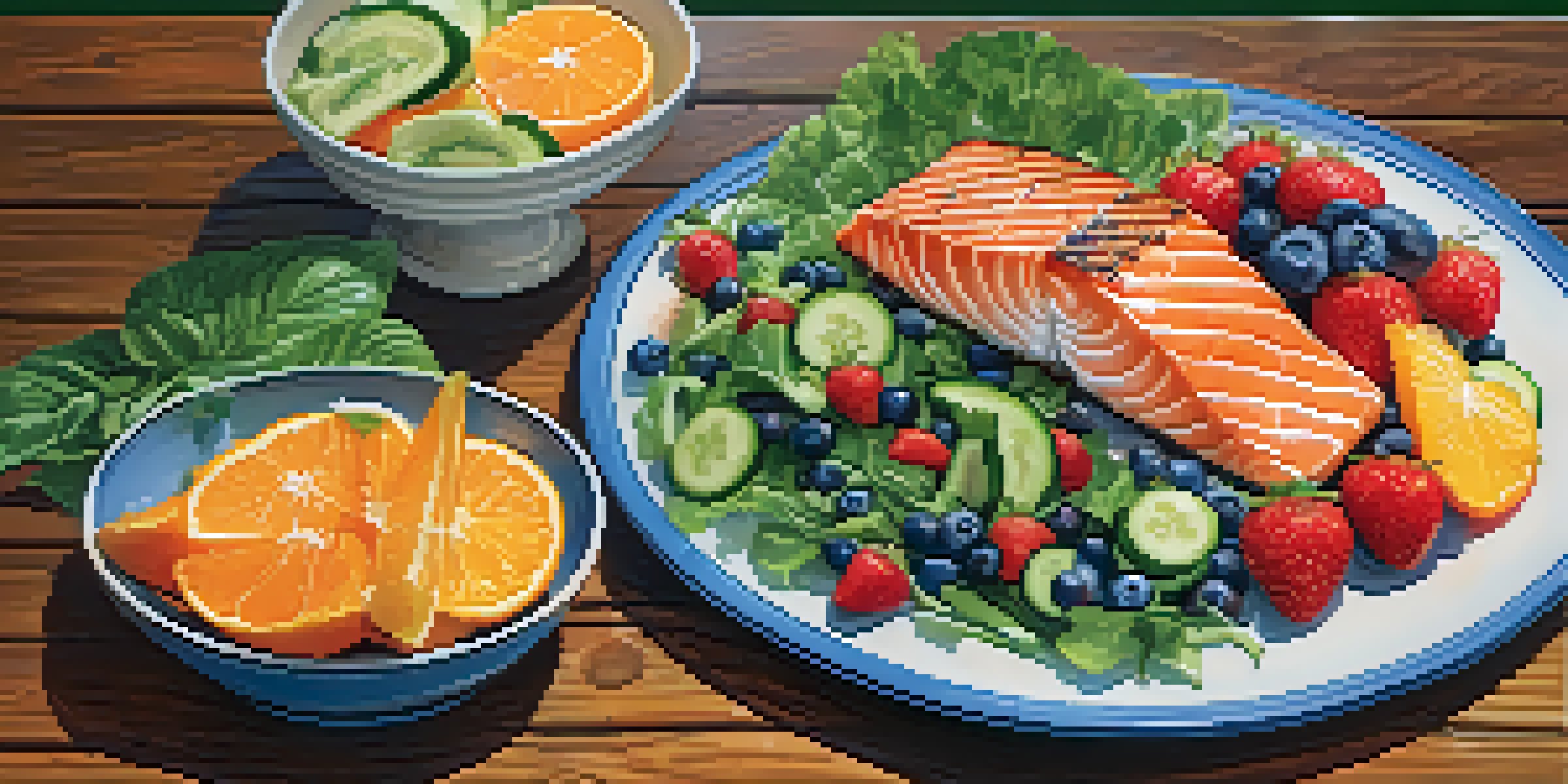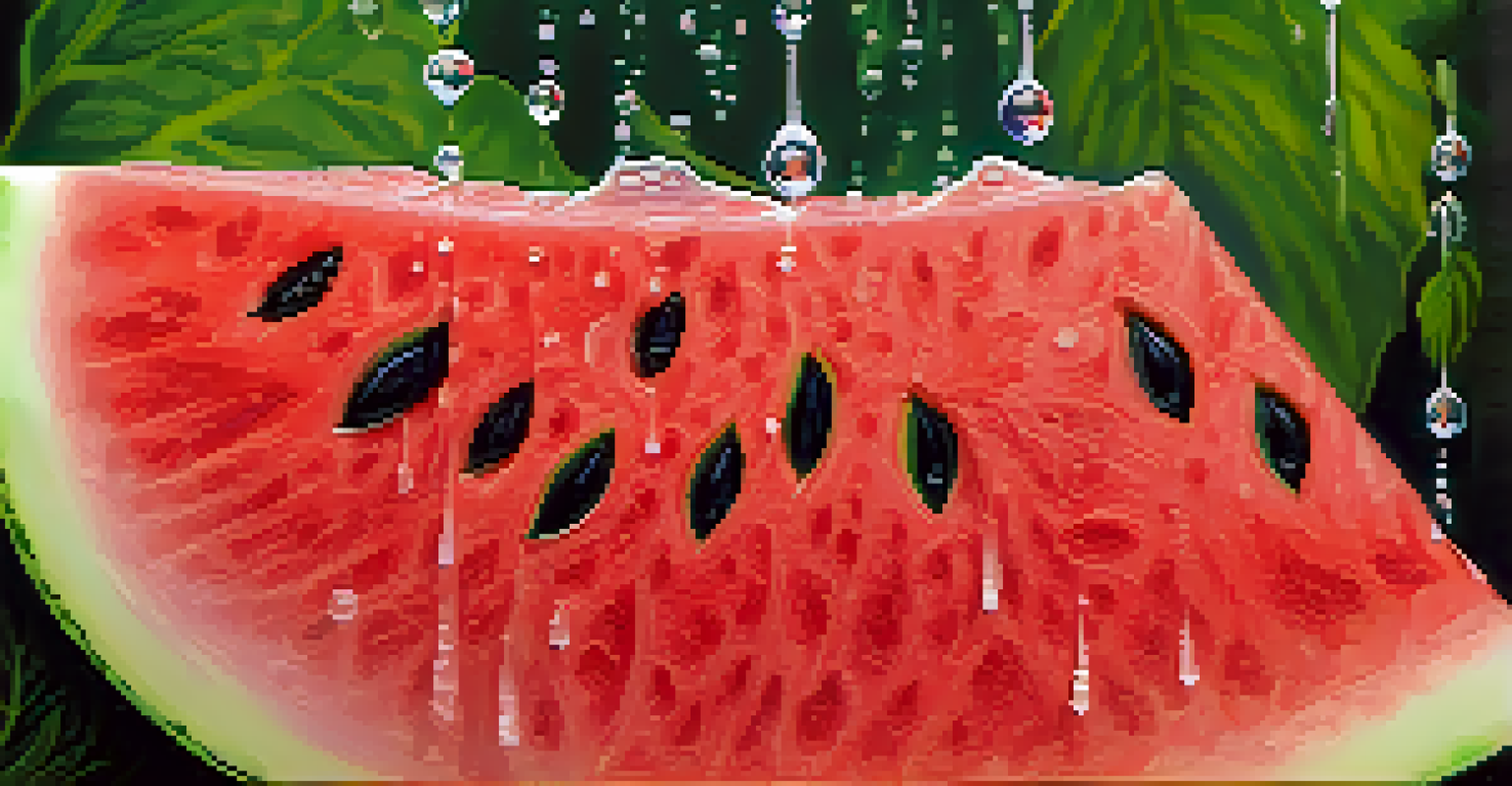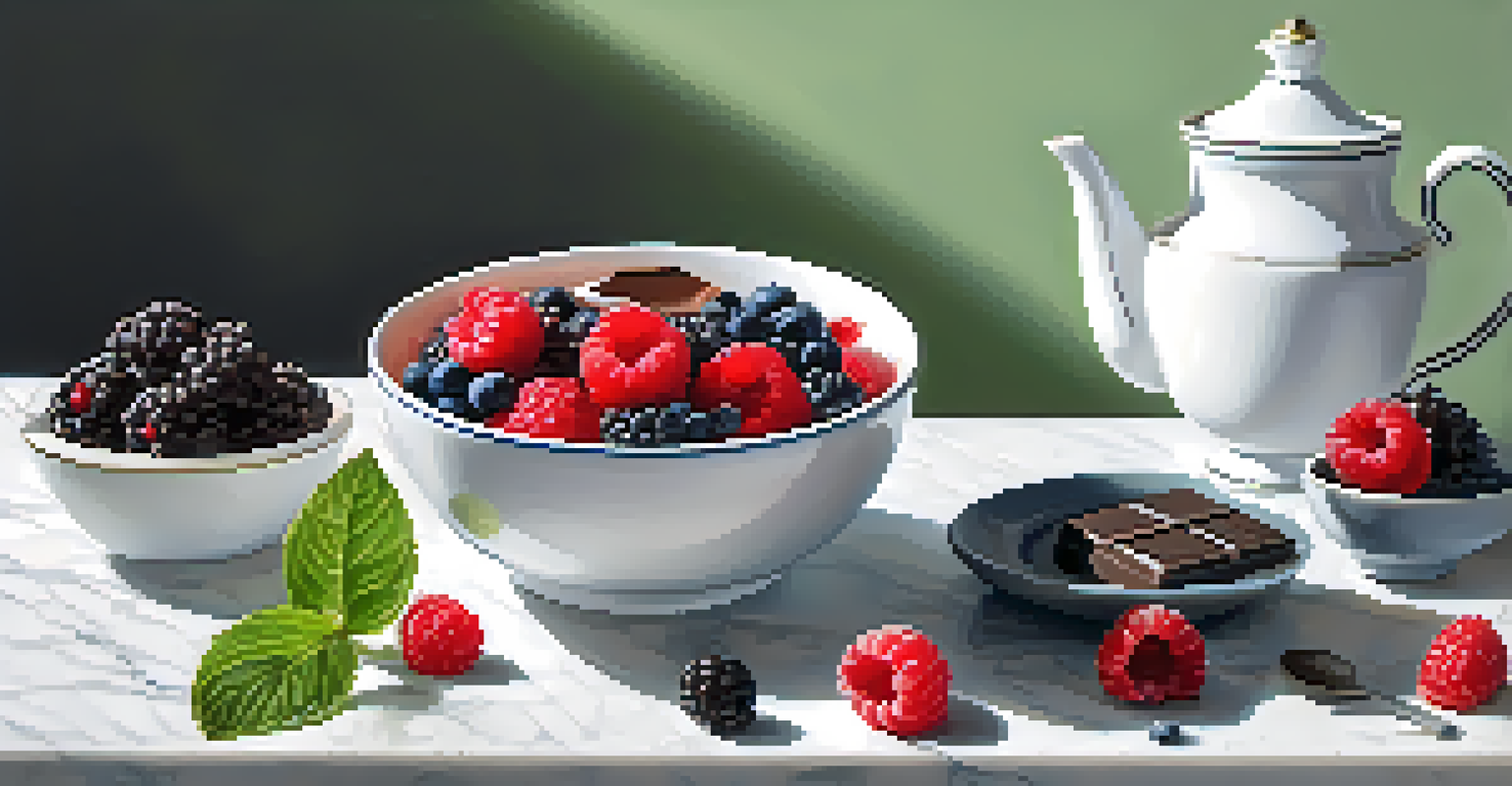The Connection Between Nutrition and Skin Health

Understanding Skin Health: A Holistic Approach
Skin health is often seen through the lens of skincare products, but nutrition plays a crucial role that shouldn't be overlooked. Just like a plant needs sunlight and water to thrive, our skin requires essential nutrients to maintain its vitality. By nourishing our bodies with the right foods, we can improve not only our skin's appearance but also its resilience against environmental stressors.
You are what you eat.
The skin is the body's largest organ, and it reflects our overall health. When we consume a balanced diet rich in vitamins and minerals, we support our skin's natural functions. For instance, foods high in antioxidants can combat oxidative stress, which is known to accelerate skin aging.
So, before you reach for that expensive cream, consider what you're putting on your plate. Sometimes, the best solutions for glowing skin lie in the foods we eat, making nutrition a key pillar in any skincare regimen.
Key Nutrients for Radiant Skin
Certain nutrients are particularly beneficial for skin health. Vitamins A, C, and E, along with omega-3 fatty acids, are crucial for maintaining skin elasticity and hydration. For example, vitamin C, found in citrus fruits, is vital for collagen production, which keeps skin firm and youthful.

Additionally, omega-3 fatty acids, present in fatty fish and flaxseeds, can help reduce inflammation, a common contributor to skin conditions like acne and psoriasis. Incorporating these foods into your diet can create a supportive environment for your skin to thrive.
Nutrition Fuels Skin Health
A balanced diet rich in essential nutrients is crucial for maintaining skin vitality and resilience.
It's important to remember that these nutrients work best in harmony. A well-rounded diet that includes a variety of fruits, vegetables, lean proteins, and healthy fats will provide the synergistic benefits your skin craves.
The Role of Hydration in Skin Wellness
Hydration is another critical factor in maintaining healthy skin. Just as a plant wilts without water, our skin can become dry and dull without adequate hydration. Drinking enough water and consuming hydrating foods like cucumbers and watermelon can help keep your skin plump and radiant.
Let food be thy medicine and medicine be thy food.
Beyond just drinking water, hydration also involves maintaining a balance of electrolytes, which help retain moisture in the skin. Foods like bananas and avocados are great for replenishing these essential minerals.
Moreover, proper hydration can aid in the skin's repair processes, making it more resilient against damage from sun exposure and pollution. So, staying hydrated is not just about quenching your thirst; it's about nurturing your skin from the inside out.
Sugar and Skin: A Complicated Relationship
While sugar can be a delightful treat, its impact on skin health is often negative. High sugar intake can lead to glycation, a process where sugar molecules bind to proteins like collagen, making them stiff and less elastic. This can result in premature aging and a loss of skin firmness.
Additionally, sugar can trigger inflammation, exacerbating conditions such as acne and eczema. Reducing your sugar intake can therefore lead to noticeable improvements in your skin's clarity and texture.
Hydration Boosts Skin Radiance
Staying properly hydrated, both through water and hydrating foods, is key to achieving plump and radiant skin.
Finding alternatives to sugary snacks, like fruits or dark chocolate, can satisfy your cravings while supporting your skin health. Remember, moderation is key; it’s all about balance.
Antioxidant-Rich Foods for Skin Protection
Antioxidants are like superheroes for our skin, fighting off free radicals that can cause damage. Foods rich in antioxidants, such as berries, green tea, and dark chocolate, can help protect the skin from environmental stressors like UV rays and pollution.
Incorporating these foods into your diet can enhance your skin's natural defenses. For instance, the flavonoids found in green tea have been shown to improve skin hydration and elasticity.
By making a habit of consuming antioxidant-rich foods, you can create a powerful shield against skin aging and maintain a youthful glow for longer.
The Impact of Processed Foods on Skin
Processed foods are often convenient, but their effects on skin health can be detrimental. Many processed foods contain high levels of refined sugars, unhealthy fats, and artificial additives, all of which can lead to inflammation and breakouts.
For example, fast food and sugary snacks can disrupt your skin's natural balance, leading to conditions like acne. On the contrary, whole foods such as fruits, vegetables, and whole grains nourish your body and skin.
Limit Processed Foods for Clarity
Reducing processed foods can significantly improve skin appearance by minimizing inflammation and breakouts.
Choosing to limit processed foods and opt for more natural options can significantly improve your skin's appearance. Think of your skin as a canvas; the better the ingredients, the more beautiful the masterpiece.
Creating a Balanced Diet for Optimal Skin Health
To achieve optimal skin health, a balanced diet is essential. This means including a variety of food groups to ensure you're getting all the necessary nutrients. Aim for a colorful plate filled with fruits, vegetables, lean proteins, and healthy fats to support your skin and overall health.
Planning meals that incorporate different food groups not only makes eating enjoyable but also maximizes the benefits for your skin. For instance, a salad with leafy greens, colorful bell peppers, nuts, and a lean protein source can be both delicious and nourishing.

Remember, small changes can lead to big improvements. By gradually incorporating more nutrient-dense foods into your diet, you can promote healthier skin without feeling overwhelmed.